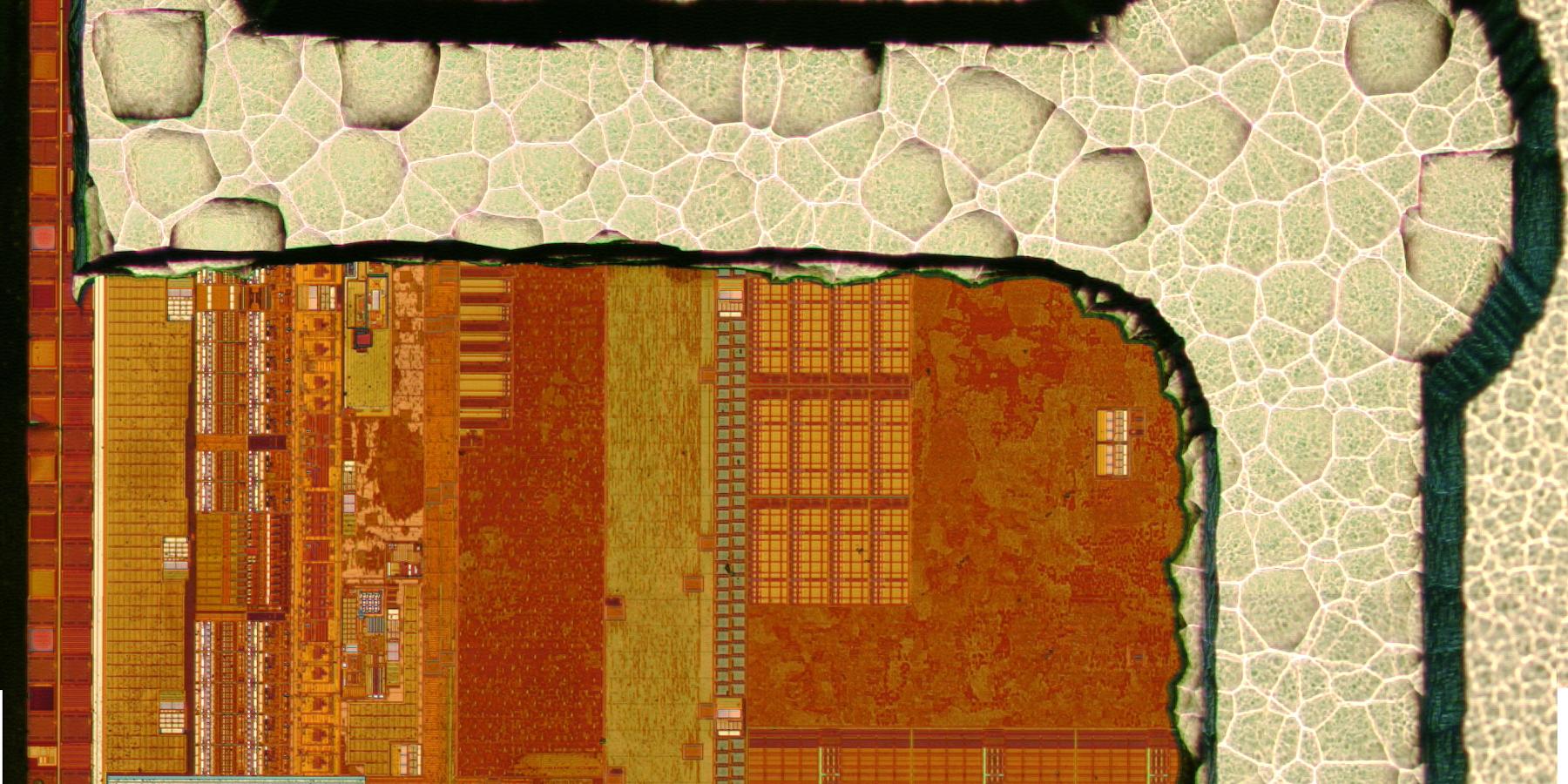CSIC researchers will develop a software to analyze electronic devices and improve cybersecurity
The Institute of Microelectronics of Barcelona (IMB-CNM-CSIC) leads the technical section of the development of a software that will allow access to the information stored in a chip. The objective of the ForRES project, financed with more than 2 million euros, is to improve the digital forensic analysis of electronic devices.

Localized opening of the backside of a smartphone processor, made at the IMB-CNM, to extract information that allows access to its encrypted storage. Backside refers to the substrate of the silicon chip.
The ForRES project seeks to provide European Law Enforcement Agencies with software tools, techniques and methods to extract and analyze the information stored in electronic systems that integrate the latest generation chips, in order to provide forensic evidence that can be used in judicial processes. After being selected by the Internal Security Fund (ISF) program, the Institute of Microelectronics of Barcelona (IMB-CNM, CSIC) and four other European institutions will have more than two million euros in two years to improve cybersecurity in the European Union.
In microelectronics, reverse engineering is made up of all the techniques that allow to reconstruct the original design of a chip from the final product, the hardware. This process, especially useful in cybersecurity to allow access to information stored on a chip, will have the experience of the IMB-CNM Reverse Engineering Team.
Within the Forensic Reverse Engineering of Silicon chips (ForRES), the IMB-CNM will be responsible for technical coordination and will participate in the development of techniques to identify the elements that make up the integrated circuits of electronic systems, such as cell phones and computers, and thus obtain images of the different technological layers of the latest generation chips. It will also participate in the creation of a software tool to deal with the large volume of images generated by the integrated circuit deconstruction process; and to reconstruct and analyze the different technological layers that make up the circuit, facilitating the extraction of the integrated logic elements and the content of read-only memories (ROM).
"To facilitate the reconstruction tasks, a software will be developed, based on the use of Artificial Intelligence (AI) and Deep Learning techniques, which will allow the identification of the logic elements integrated into a next-generation chip. The aim is to create software tools that, based on the logical elements identified, can extract higher-level logical structures, facilitating the reconstruction of the functionality of the blocks that make up a circuit", indicates Salvador Hidalgo, researcher at IMB-CNM.
The development of this type of techniques and tools will allow potential end users to "carry out studies in months that would require years of work with the currently available procedures," he adds. The project does not pursue the total reconstruction of an integrated circuit, but "the identification and reconstruction of those blocks that are related to the security mechanisms integrated into it and that can facilitate access to the stored information," says Hidalgo.
The procedures developed will be as generic as possible in order to be able to apply them to a wide spectrum of circuits used in the fields of interest. With these works, the aim is for the European Law Enforcement Agencies (LEAs) to have a platform based on techniques that help increase and improve both the skills and experience of experts in digital forensic analysis, with special attention to smartphones, IoT (Internet of Things) devices and encrypted storage systems.
Collaboration in criminal investigation and cybersecurity
The IMB-CNM will work in collaboration with the German Federal Criminal Police Office (Bundeskriminalamt, BKA), the Netherlands Forensic Institute of the Dutch Ministry of Security and Justice (NFI), the Norwegian National Criminal Investigation Service (NCIS) and the company Technikon (Austria).
The Internal Security Fund (ISF), created by the European Parliament in 2021, has a total budget of 1,930 million euros. The Fund will contribute to achieving a high level of security in the EU, in particular by preventing and combating terrorism, radicalisation, organized crime and cybercrime, assisting and protecting victims, and effectively preparing, protecting and managing incidents, crises and security-related risks.




